"Art for a Sustainable Future" events held in Shanghai
2019-12-20GoldenBeeGoldenBee0
In December 2019, during the GoldenBee CSR Carnival in Shanghai, famous Chinese artists, business representatives and sustainability scholars jointly issued the "Art for a Sustainable Future" Initiative and held the sustainable art academic seminar.
Zhuang Wei, Chief Expert and Chief Creative Officer of GoldenBee Sustainable Brand Communication; Jing Yumin, Deputy Director of the Art Committee of the National Urban Sculpture Steering Committee; Zheng Jing, Deputy Dean of School of Sculpture and Public Art, China Academy of Art; Zhang Meng, Professor, Dean of Department of Video Art of Tianjin Academy of Fine Arts; Jiang Tieli, Deputy Dean of Shanghai Academy of Fine Arts; Wang Xiaojie, Professor and Master Supervisor of Department of Oil Painting of Tianjin Academy of Fine Arts; Liu Yue, Contemporary professional painter, freelance curator, art critic; Inge Zhou, Vice President, Corporate Communications, Volvo Group China and Mr. Yu Zhihong, President and Editor-in-Chief of China Sustainability Tribune, jointly launched the "Art for a Sustainable Future" Initiative.
Zhuang Wei, Chief Expert and Chief Creative Officer of GoldenBee Sustainable Brand Communication; Jing Yumin, Deputy Director of the Art Committee of the National Urban Sculpture Steering Committee; Zheng Jing, Deputy Dean of School of Sculpture and Public Art, China Academy of Art; Zhang Meng, Professor, Dean of Department of Video Art of Tianjin Academy of Fine Arts; Jiang Tieli, Deputy Dean of Shanghai Academy of Fine Arts; Wang Xiaojie, Professor and Master Supervisor of Department of Oil Painting of Tianjin Academy of Fine Arts; Liu Yue, Contemporary professional painter, freelance curator, art critic; Inge Zhou, Vice President, Corporate Communications, Volvo Group China and Mr. Yu Zhihong, President and Editor-in-Chief of China Sustainability Tribune, jointly launched the "Art for a Sustainable Future" Initiative.
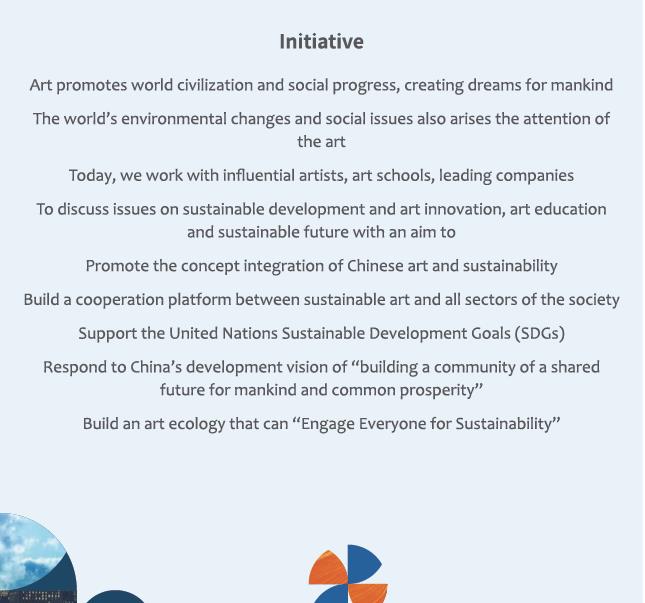
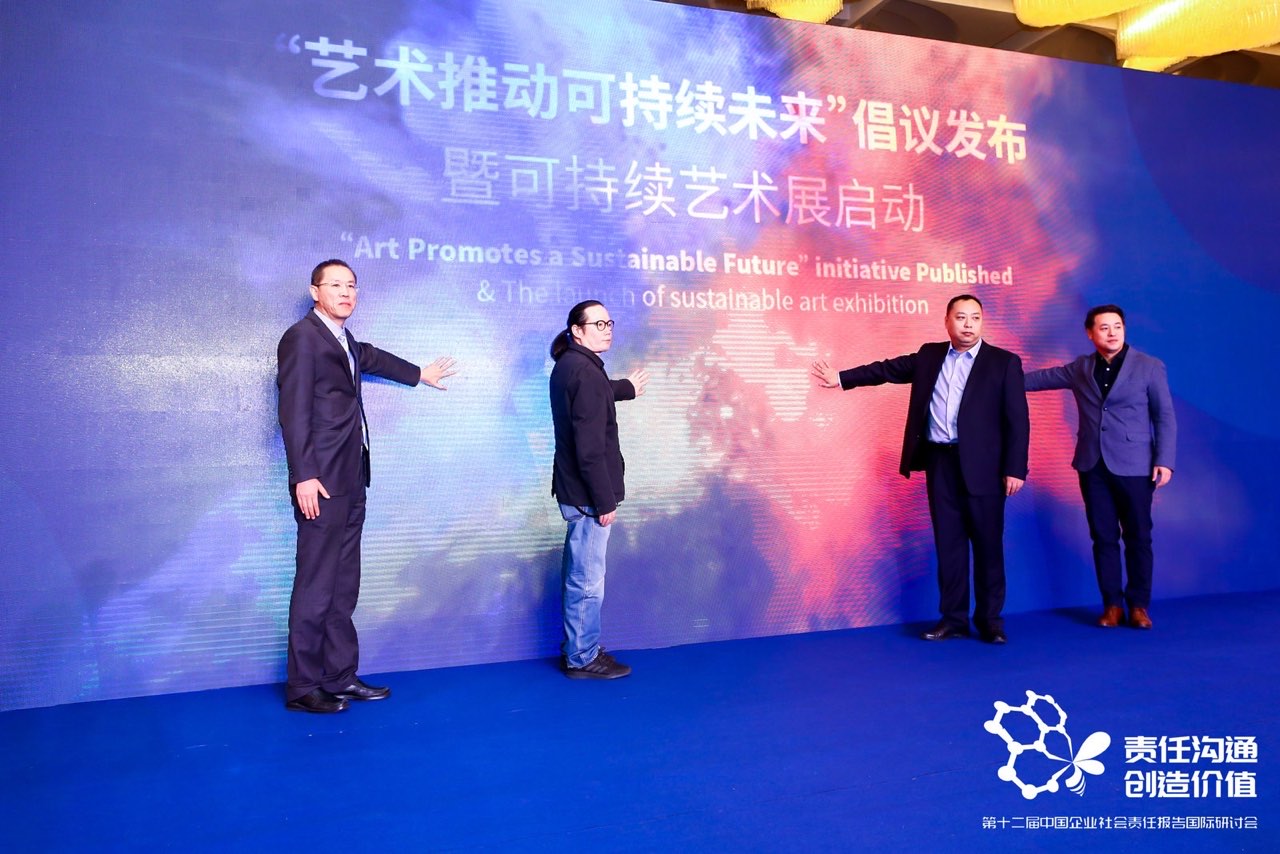
"Art for a Sustainable Future" Initiative
The "Art for a Sustainable Future" events consist of three parts: initiative release, art exhibition and academic forum. GoldenBee Think Tank successfully held sustainable art exhibition with many famous artists and business representatives.
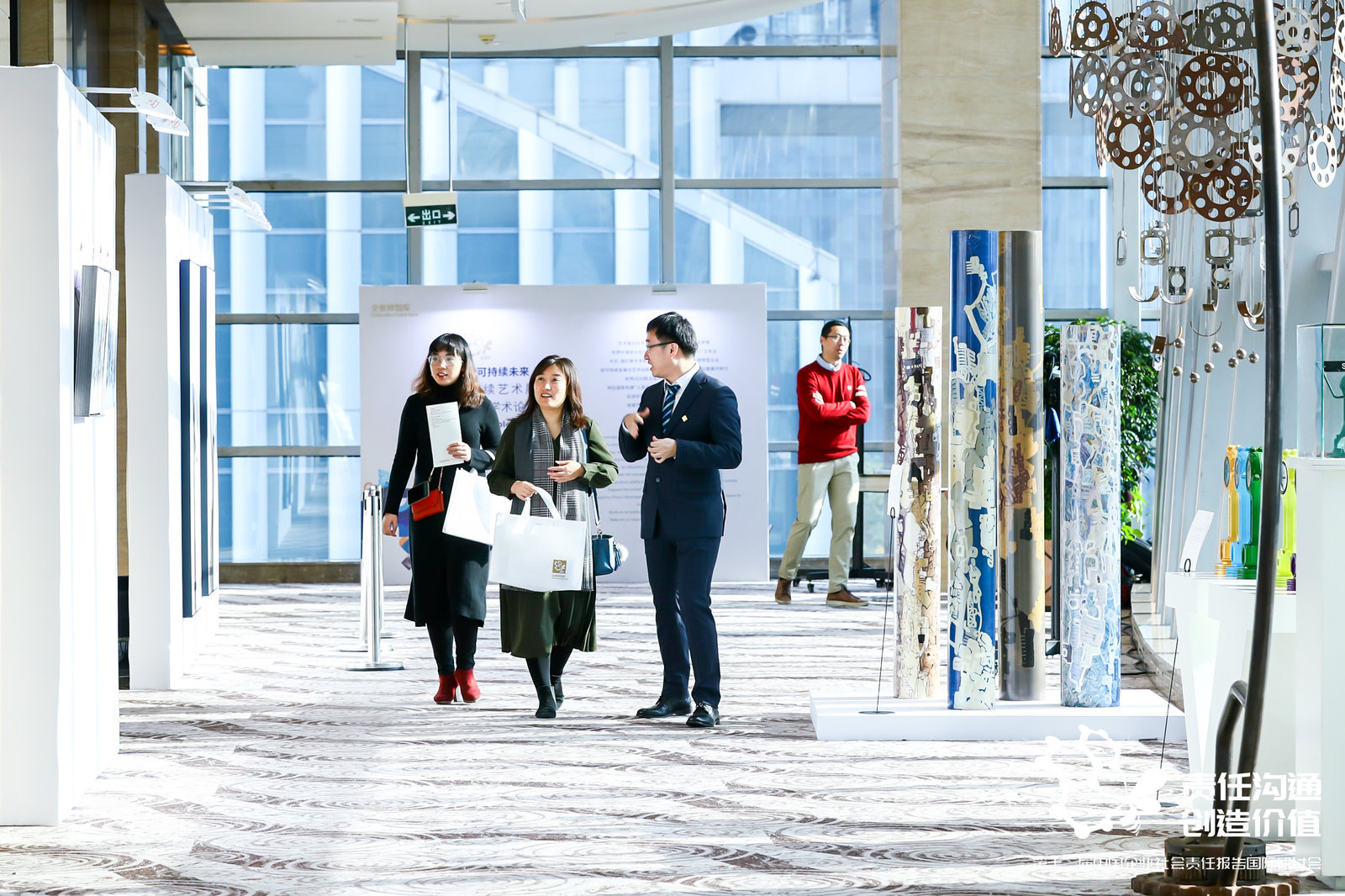
"Art for a Sustainable Future" Art Exhibition
More than 200 business representatives, art experts and scholars, young artists, news media, etc. gathered together to enjoy the sustainable art exhibition and attended the academic forum. Mr. Zhuang, the chief planner of the forum and the moderator of this forum invited artists to discuss topics of "the art and sustainable development", and "art education and sustainable future".
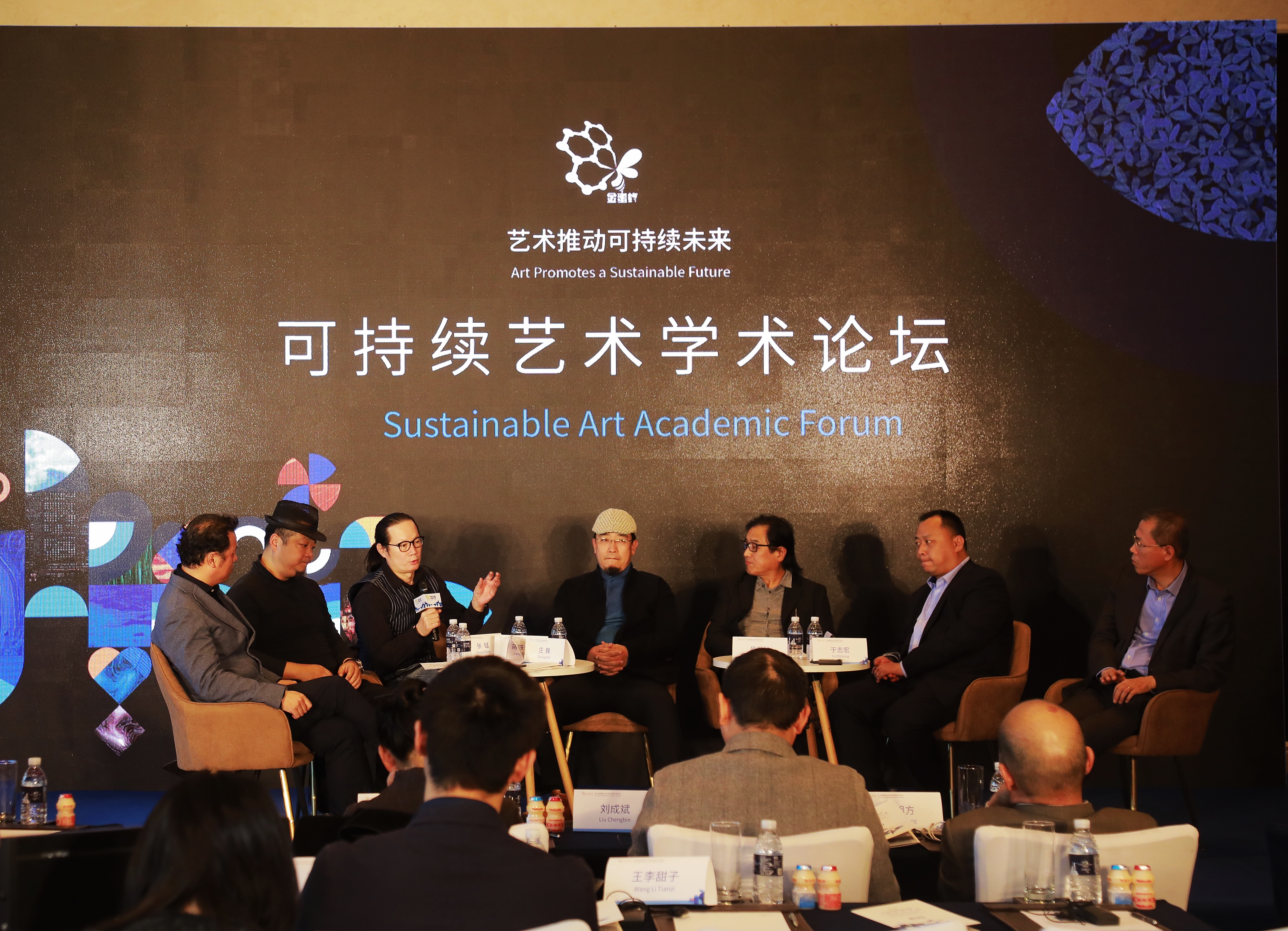
Sustainable Art Academic Forum
Topic 1: The Art and Sustainable Development
In this session, Mr. Zhuang first shared the view that "the integration of sustainable development and art is an important part of art language. Art power can gather social consensus and resources, which can give full play to art value and make it an important force for the development of Chinese culture and building a sustainable consensus between China and the world."
Professor Zheng divided the relationship between sustainable development and art into two dimensions: the noumenon of art and the social role of art. According to Professor Zheng, "the essence of art is continuous innovation. Innovation is applicable to both business and art. Every artist is considering its sustainability." He believed that the ultimate goal of art creation is to arouse the public's awareness of topics and promote the concept of sustainable development to the public.
Mr. Liu put forward that "art itself is naturally sustainable, and both the art community and enterprises need to take social responsibility for sustainable development. Artists and entrepreneurs have the responsibility of sustainable development in our times. This is the responsibility that we must take when we come to this stage in the history of civilization. "
Mr. Yu believed that "Art is consistent with the goal of sustainability. Art has the power to awaken our awareness and help us transform from unsustainable production and life style to sustainability."
At the end of this session, Mr. Zhuang, taking the project of Volvo Group in sustainable development as an example, introduced how enterprises can achieve cross-border cooperation with the art. Volvo Group has successfully held the Art Competition of Eco-friendly Design for Architectural Equipment. The competition aimed to recycle the old engine for secondary use, and invited young artists to create art with waste materials. The competition's cross-border integration of environmental protection and art brought the topic of metal recycling closer to life, which helped build a green and sustainable urban space together with the public.
Mr. Zhuang said that "Volvo's sustainable projects help it form a sustainable culture inside and outside the company, which is a perfect experience of the combination of business and the art, and also a very representative art practice."
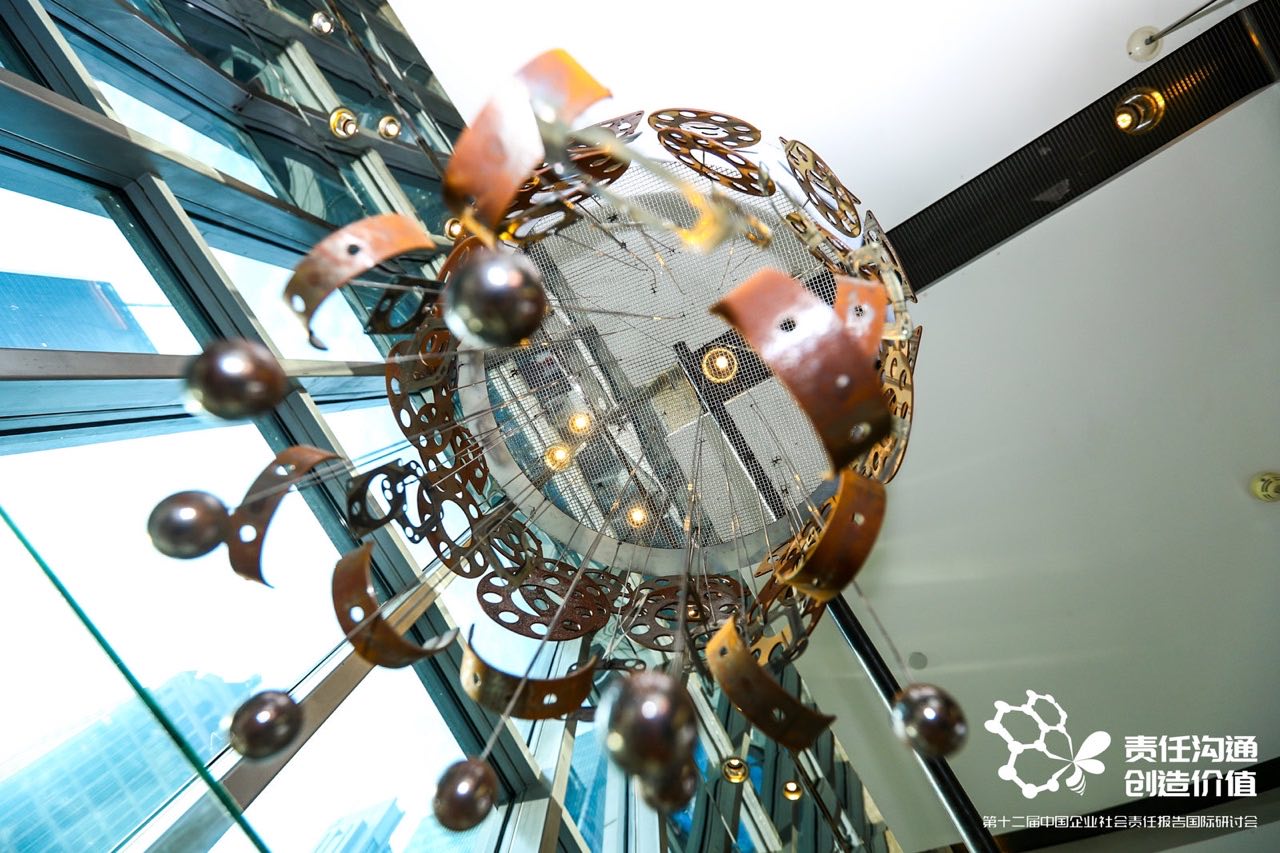

Volvo Sustainable Art Exhibition
Topic 2: Art Education and Sustainable Future
In this session, Mr. Zhuang believed that "the most important thing at present is how art guides the public to understand the sustainability and create a cultural consensus of the whole society." At the same time, the panellists discussed the topics of "art education and sustainable future", that is, how art can promote the creativity of young artists, awaken social consciousness, promote the development of Chinese culture, and improve the soft power and quality of the whole nation.
Professor Zhang shared his academic research experience in 2019 with participants. He mentioned that "part of this year's research is the transformation of professional education to life education, and this aims to study how to deal with the society and the changing world."
Professor Jiang believed that "the importance of art education lies in the artists. Art education endows the advantages of fast and deep understanding in the aspects of cognizing society, practicing the sustainability and promoting social civilization."
Professor Jing proposed that "art education is not only to train technical talents, but also to improve national quality. When deepening the understanding of society and art, we will start to transform our thoughts on technology to thinking about culture, which can upgrade the society."
Finally, Mr. Zhuang summarized this forum: "The discussion on this forum is a good starting point for the future development of sustainable art. 2020 is a crucial year for China and the world to see the art become an important force for sustainable development. We will continue to integrate more social resources and promote sustainable art change from the theoretical field to the practical stage."
Best Practices
- The 100-year brand — Air Liquide also has a sense of juvenile
- Beijing Public Transportation Corporation: Developing green transportation to build a harmonious and livable capital
- CGN: Building a modern factory in barren deserts and developing a new win-win cooperation model along “Belt and Road”
Upcoming Event

All the materials on the site “Source: XXX (not from this site)” have been reprinted from other media. They do not imply the agreement by the site.
All the materials with “Source: CSR-China Website” are the copyright of CSR-China Website. None of them may be used in any form or by any means without permission from CSR-China Website.
GoldenBee Official WeChat
Copyright © Csr-china.net All Right Reserved.
京ICP备19010813号










